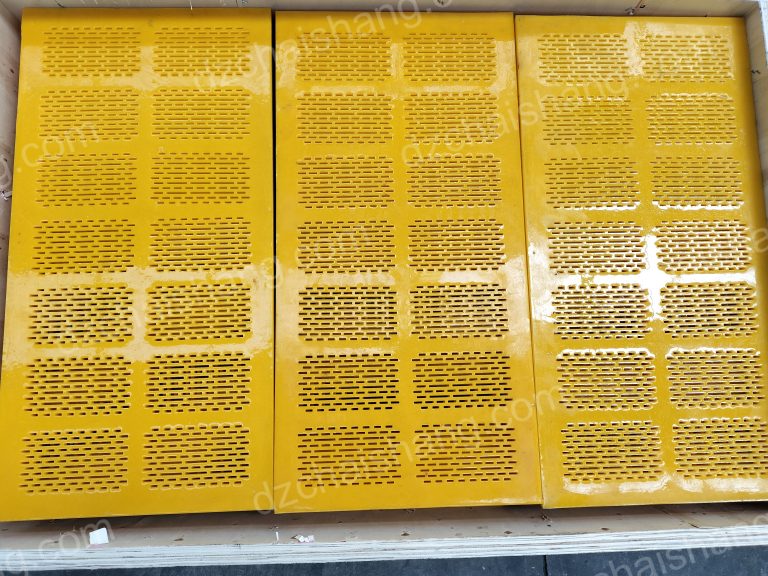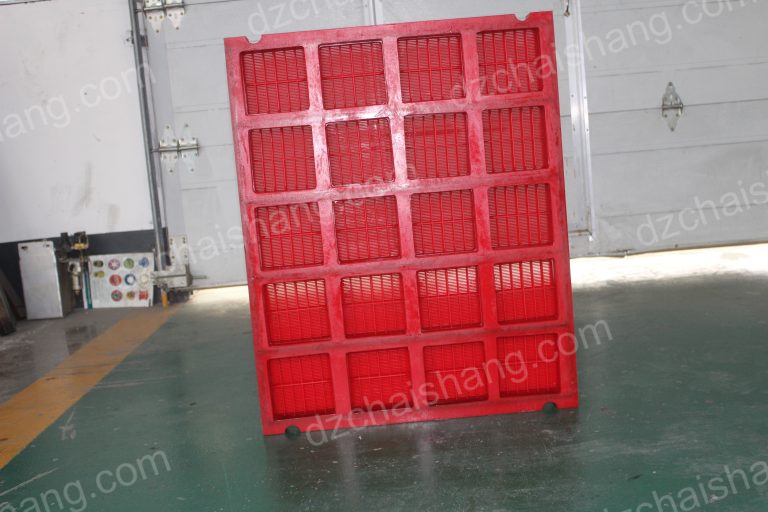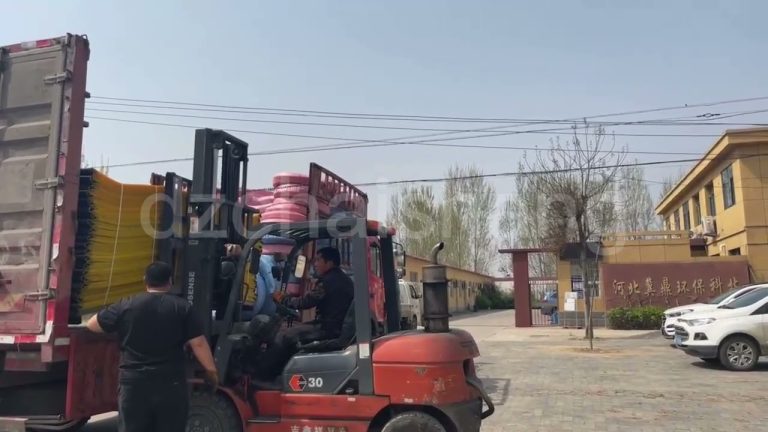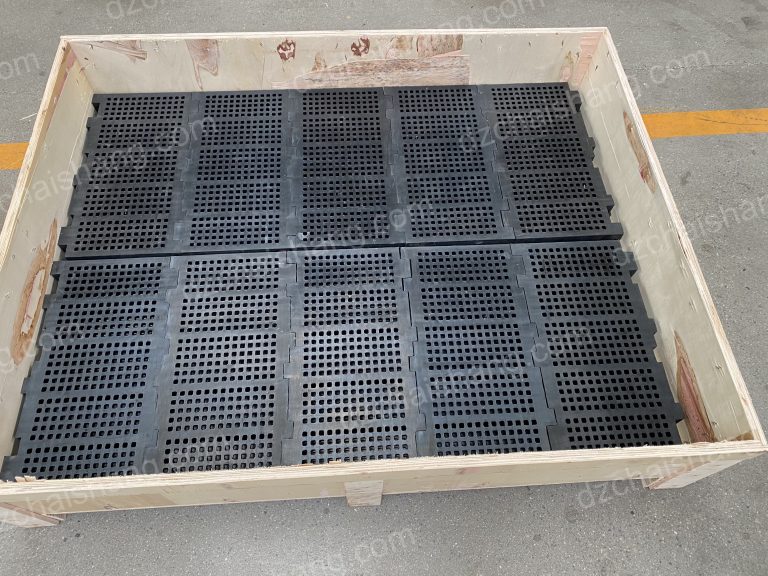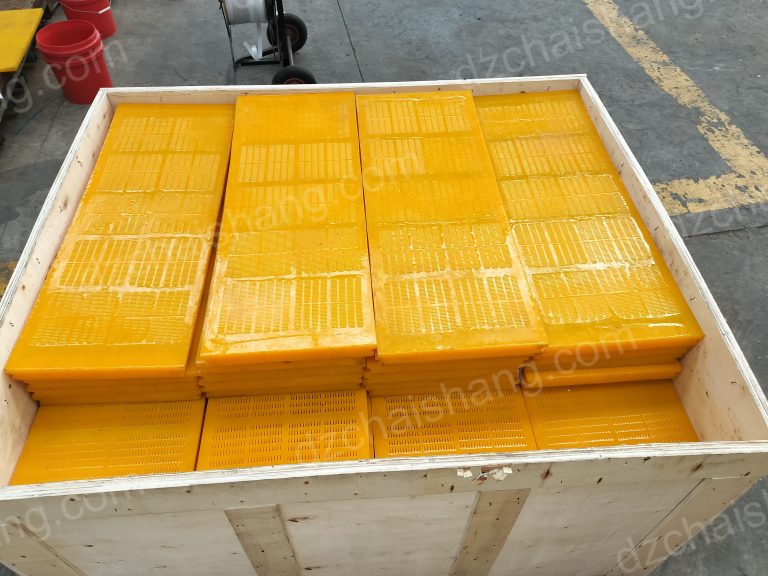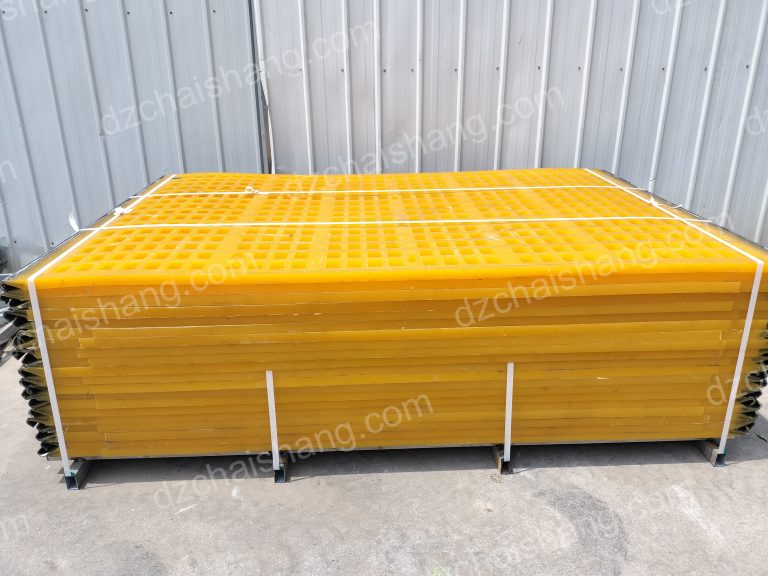Optimizing Dewatering Efficiency: A Guide to Selecting the Right PU Tension Plate Supplier
In the realm of industrial dewatering processes, the selection of the right components plays a crucial role in optimizing efficiency and performance. One such component that significantly impacts dewatering operations is the PU tension plate. As the demand for effective dewatering solutions continues to rise across various industries, selecting a reliable PU tension plate supplier becomes paramount. In this guide, we delve into the importance of PU tension plates in dewatering applications and provide insights on selecting the right supplier for your specific needs.

PU tension plates are integral components in dewatering equipment, particularly in processes involving the separation of solids and liquids. These plates, typically made from polyurethane material, provide the necessary tension and support to dewatering screens or meshes, ensuring proper alignment and effective filtration. The quality and durability of PU tension plates directly influence the efficiency and longevity of dewatering operations, making the selection of a reputable supplier essential.
When considering potential PU tension plate suppliers, it is crucial to evaluate several factors to ensure compatibility with your dewatering equipment and requirements. Firstly, assess the supplier’s experience and expertise in manufacturing PU tension plates for dewatering applications. A supplier with a proven track record and extensive knowledge in this field is more likely to deliver high-quality, reliable products that meet your specifications.
Furthermore, inquire about the supplier’s manufacturing processes and quality control measures. Optimal PU tension plates are crafted using advanced manufacturing techniques and undergo rigorous quality checks to ensure dimensional accuracy, durability, and resistance to wear and tear. A reputable supplier will adhere to strict quality standards and employ quality assurance protocols throughout the production process, guaranteeing consistent performance and reliability of their products.
In addition to quality, consider the supplier’s ability to provide customized solutions tailored to your specific dewatering requirements. Dewatering operations vary widely across industries, necessitating PU tension plates with varying specifications such as size, thickness, aperture size, and tension strength. A supplier capable of accommodating custom orders and offering expert guidance on selecting the right specifications for your application is invaluable in optimizing dewatering efficiency.
Moreover, assess the supplier’s commitment to customer support and after-sales service. Timely assistance, technical support, and prompt resolution of any issues or concerns are essential aspects of a reliable supplier-customer relationship. Choose a supplier that prioritizes customer satisfaction and demonstrates responsiveness and accountability in addressing inquiries or resolving issues related to their products.
Collaborating with a trusted PU tension plate supplier not only ensures the performance and reliability of your dewatering equipment but also contributes to cost-effectiveness and operational efficiency in the long run. By investing in high-quality PU tension plates from a reputable supplier, you minimize downtime, maintenance costs, and the risk of premature equipment failure, ultimately maximizing productivity and profitability.
In conclusion, selecting the right PU tension plate supplier is a critical step in optimizing dewatering efficiency and achieving optimal performance in industrial processes. Consider factors such as experience, quality, customization capabilities, and customer support when evaluating potential suppliers. By partnering with a reputable supplier that prioritizes quality, reliability, and customer satisfaction, you can enhance the effectiveness and longevity of your dewatering operations, ultimately driving success in your industry.
The Role of Jobbers in Enhancing Dewatering Processes with PU Tension mesh: Benefits and Considerations
Polyurethane (PU) tension mesh plays a crucial role in dewatering processes across various industries, aiding in the separation of liquids and solids efficiently. In this regard, jobbers who supply PU tension plates are instrumental in enhancing dewatering operations. The utilization of PU tension mesh offers several benefits, along with considerations that jobbers and industry professionals must take into account.
PU tension mesh, characterized by its durability and flexibility, provides an effective solution for dewatering applications. Its ability to withstand high pressure and abrasive materials makes it suitable for use in diverse environments, ranging from mining and aggregate processing to municipal wastewater treatment plants. Jobbers serving as suppliers of PU tension plates ensure a steady provision of these essential components, facilitating seamless operations for end-users.
One of the primary advantages of PU tension mesh in dewatering processes is its superior drainage capabilities. The mesh structure allows for efficient drainage of water, while retaining solid particles, thereby enhancing the separation efficiency. This feature is particularly crucial in industries where the recovery of valuable solids or the disposal of sludge is a priority. Jobbers play a vital role in ensuring the availability of high-quality PU tension plates that maximize drainage efficiency.
Furthermore, PU tension mesh offers excellent wear resistance, contributing to prolonged service life and reduced downtime. Jobbers supplying PU tension plates prioritize quality and durability, thereby enabling end-users to optimize their dewatering operations with minimal disruptions. This reliability is especially beneficial in industries where continuous production is essential, such as mining and mineral processing.
In addition to its functional benefits, PU tension mesh also offers ease of installation and maintenance. Jobbers provide comprehensive support to their clients, offering guidance on installation procedures and maintenance best practices. This ensures that end-users can efficiently integrate PU tension mesh into their dewatering systems and effectively manage their equipment for long-term performance.
However, while PU tension mesh offers numerous advantages, there are also considerations that both jobbers and end-users must keep in mind. One such consideration is the importance of selecting the appropriate mesh size and configuration based on the specific dewatering requirements. Jobbers collaborate closely with their clients to understand their needs and recommend suitable PU tension plates that align with their operational objectives.
Another consideration is the compatibility of PU tension mesh with existing dewatering equipment and processes. Jobbers provide customization options to ensure seamless integration with various types of dewatering machines and systems. This customization may include tailored mesh sizes, edge treatments, and reinforcement features to optimize performance and compatibility.
Moreover, environmental considerations play a significant role in the selection of PU tension mesh for dewatering applications. Jobbers prioritize sustainability by offering eco-friendly materials and manufacturing processes, thereby supporting environmentally conscious practices within the industry. This commitment to sustainability resonates with end-users seeking to minimize their environmental footprint while maximizing operational efficiency.
In conclusion, jobbers play a crucial role in enhancing dewatering processes with PU tension mesh by supplying high-quality plates and offering comprehensive support to end-users. The benefits of PU tension mesh, including superior drainage, durability, and ease of maintenance, contribute to improved efficiency and productivity across various industries. By addressing key considerations such as mesh selection, compatibility, and sustainability, jobbers enable end-users to optimize their dewatering operations effectively.

